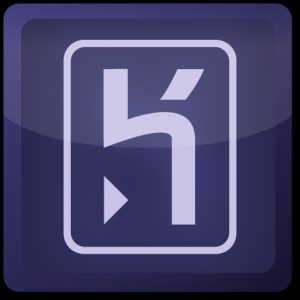 NEWS
NEWS
 NEWS
NEWS
 NEWS
NEWS
![]() Heroku, best known as a platform-as-a-service for Ruby on Rails, announced today that it will support Java. The company added beta support for two other development stacks this year – Node.js and Clojure – but this is the first addition of a mainstream language since its launch.
Heroku, best known as a platform-as-a-service for Ruby on Rails, announced today that it will support Java. The company added beta support for two other development stacks this year – Node.js and Clojure – but this is the first addition of a mainstream language since its launch.
Instead of going the acquisition route Heroku built the Java support in-house. “We didn’t want Heroku for each language, wanted one Heroku for everything, based on a strong stack of technology,” Heroku CTO Adam Wiggins said in an interview with ServicesAngle.
When Wiggins says there is one Heroku for all languages, he’s largely speaking about the deployment system. Wiggens says that Heroku users will be able to use the same deployment system with Ruby, Java, Clojure and Node.js. Heroku is trying to differentiate itself with its deployment system, so using the same system across languages, instead of building a different system for each language, makes sense in this context.
Wiggens did say, however, that Heroku has made changes to that deployment system as it has added support for more languages. He says the changes make the system better for both Java and Ruby developers.
As to why Heroku decided to support Java as its second mainstream language, Wiggens said the company plans to support many more languages in the future. He said that Java, however, was one of the most challenging to get right and he and his team felt that if they could get Java working then they’ll be able to get anything working.
Heroku is owned by Salesforce.com, which acquired the PaaS last year. Salesforce.com has its own Java-based PaaS in partnership with VMware called VMforce. Wiggins declined to comment on how Heroku’s Java offering will affect Salesfoce.com’s own Java PaaS strategy.
Wiggens did confirm however that Heroku will continue to run on Amazon Web Services’ infrastructure and not Salesforce.com’s.
The news follows Engine Yard’s acquisition of PHP PaaS Orchestra this week and VMware’s announcement yesterday that Cloud Foundry is partnering with AppFog (formlerly PHPFog) to offer PHP and Python support (this provides an additional reason that Engine Yard acquired Orchestra instead of PHPFog).
The era of what Heroku CTO Adam Wiggins calls the “polyglot platform” is now fully underway. Engine Yard, Heroku, Cloud Foundry, AppFog, Red Hat’s OpenShift, Microsoft Azure, Google App Engine and DotCloud all support at least one mainstream programming language now. You can find good lists of PaaS providers here and here.
Heroku is depending on its deployment platform to distinguish it from other platforms. Engine Yard is banking on recognition of its deep expertise in Ruby and the Orchestra’s team’s reputation in the PHP community to make a name for itself. VMware is pushing the openness of its system. Google and Microsoft so far are banking on name recognition. Each provider is going to have to come up with a good angle, not to mention a rock-solid service to back it up.
Support our mission to keep content open and free by engaging with theCUBE community. Join theCUBE’s Alumni Trust Network, where technology leaders connect, share intelligence and create opportunities.
Founded by tech visionaries John Furrier and Dave Vellante, SiliconANGLE Media has built a dynamic ecosystem of industry-leading digital media brands that reach 15+ million elite tech professionals. Our new proprietary theCUBE AI Video Cloud is breaking ground in audience interaction, leveraging theCUBEai.com neural network to help technology companies make data-driven decisions and stay at the forefront of industry conversations.